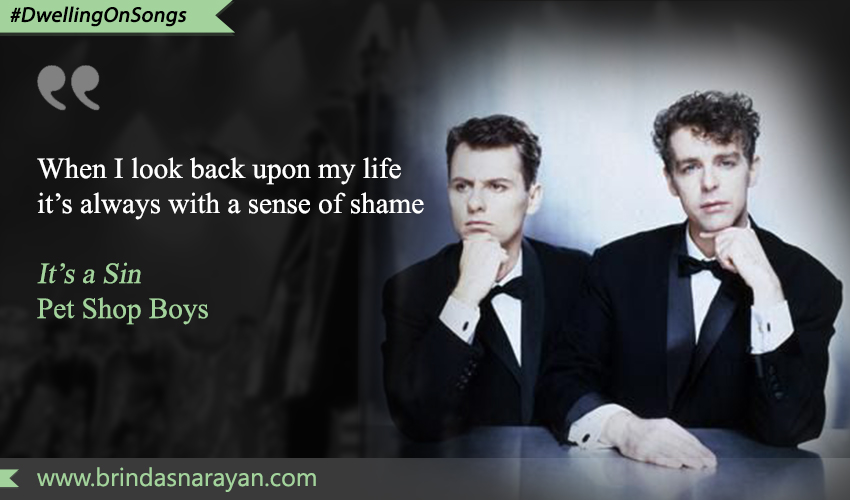
It’s a Sin: Why The Pet Shop Boys Still Command Such Interest
A recent issue of The Economist (June 25, 2022) recounted the story behind one of my all-time favorite songs: It’s a Sin by Pet Shop Boys. For those of you who are unfamiliar with the British band or its haunting lyrics, the first verse goes as follows:
When I look back upon my life
it’s always with a sense of shame
I’ve always been the one to blame
For everything I long to do
no matter when or where or who
has one thing in common too
It’s a sin
The song was first released in 1987, when Margaret Thatcher had won a third term, amidst rising disenchantment among the working class. Neil Tennant, the band’s lead singer, had studied in a Catholic school and was gay. This was a time when gay marriage wasn’t anywhere on the cards, and moreover when the Thatcherite regime was cracking down on “the promotion of homosexuality” in schools. Drawing from his Catholic schooling, Tennant simultaneously imbibes and mocks the strict diktats of the church, with its confessional setting and hooded fatherly priests. Of course, the patriarchal structure of the religious organization could not have escaped someone like Tennant or his bandmate, Chris Lowe. After all, their songs chronicle shifting cultural and social forces with heart-stopping acuity.
In Suburbia, they capture the banality of suburban existence – with its lurking horrors. The word “suburbia” has always had a derisive edge to it, since typical suburbs contain nuclear heteronormative families, with an enervating sameness to routines inside households or within neighborhoods. Though Indian suburbs might be characterized by somewhat more mixed family settings – as in joint families as well as nuclear ones – the expected conformity to middle-class norms possibly bears down with equal thrust. In the song, where the “suburbs meet utopia” and where “Mother’s got her hairdo to be done,” the late-80s British band could well be describing contemporary gated communities in Bangalore or in any other metropolitan Indian city.
Ennui is a state that the Pet Shop Boys have examined with intended irony. Apparently, once, the singer duo was described as “being boring” by someone in Japan. Perhaps riled and amused in equal parts by that belittling appraisal of their talents, they penned the comic, tragic Being boring which dwells on the shift in values as one ages. When one leaves youthful ideals in the past, and settles with a different crowd, different faces, even as one gazes wistfully at earlier times. The words in the last stanza were apparently inspired by a quotation attributed to Zelda Fitzgerald, the feisty wife of the novelist Scott Fitzgerald: “She refused to be bored chiefly because she wasn’t boring.” Echoes of this sentiment run through the song, with the last stanza mimicking Zelda’s words:
cause we were never being boring
we were never being bored
Honestly, I can still listen to most Pet Shop Boys songs without “being bored”. It’s not just the words, which are oblique and layered and acerbic, but also the music. The electropop band continues to seduce and entice, even as the duo are launching on a “greatest hits” tour in 2022. Why do they still invoke worldwide appeal? As The Economist puts it, the lyrics are lifted by “infectious beats, arresting key changes, swooning refrains and operative climaxes.” To top it all, the videos feature the deadpan, glazed looks of its singers. Who communicate the fatigue and tediousness of modernity as few others can.
References




